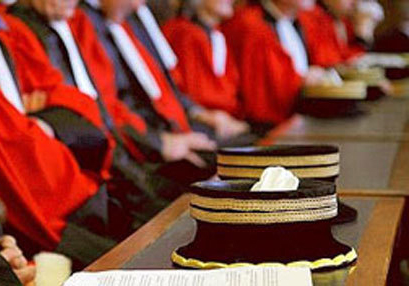
Mar 30, 2017 | News
The ICJ today called on the Tunisian President, Beji Caid Essebsi, to refrain from signing into law amendments to the law that regulates the country’s High Judicial Council (HJC). The amendments were adopted on Tuesday 28 March 2017 by the People’s Representatives Assembly.
The ICJ also urged the Head of the Cabinet, Youssef Chahed, to act, as a matter of highest priority, on the nominations by the Instance Provisoire de la Justice Judiciaire (IPJJ) with a view to filling the positions of the First President of the Cassation Court and its General Prosecutor.
The ICJ expressed concern that the amendments revising the country’s 2016 HJC law would weaken the effective functioning of the judiciary and the administration of justice in several respects
- The amendments would strip the IPJJ President of the authority to convene the HJC’s first meeting and instead provide the President of the Parliament with such power. This would constitute an inappropriate interference of the legislative branch into the management of the judiciary in clear violation of the principle of separation of powers and judicial independence.
- The amendments would explicitly exclude any possibility of challenge or judicial review of such action of the President of the Parliament. The ICJ considers that the judiciary must be able to review such decisions to ensure that they are not exercised arbitrarily or outside the law.
- The amendments would also reduce the quorum required for the validity of HJC meetings from one-half to one-third of its members. This could lead to situations where non-judicial members of the HJC have the power to take decisions over the judiciary, in contravention of international standards.
“Instead of using legislative tactics and procedures to weaken the independence and the effective functioning of the HJC, the Tunisian Head of Cabinet should act on the IPJJ’s nominations to fill the positions of the President and the Prosecutor General of the Cassation Court as a matter of urgency, and ensure that until the HJC is properly established, the IPJJ continues to fully exercise its competencies in overseeing and managing the judiciary,” said Said Benarbia, Director of the ICJ Middle-East and North Africa (MENA) Programme.
Indeed, irrespective of the amendments, the ICJ recalls that article 148(8) of the Constitution clearly states that the IPJJ is to carry out its mandate until the seats on the HJC have been filled. This is further affirmed under article 74 of the 2016 HJC Law and article 19 of the 2013 IPJJ Law. Both of these laws make the end of the exercise of the IPJJ’s functions dependent on two conditions, namely that the HJC be fully composed and established.
The ICJ considers that the delay in acting on the IPJJ nominations of senior judges risks undermining the effective functioning of the judiciary, as well as adversely affecting the functioning of other institutions that are essential to upholding the rule of law and protecting human rights in Tunisia. The adopted amendments are no answer to this problem.
“The ongoing crisis is political and not judicial,” Benarbia said.
“Solving it does not require the introduction of legislative amendments that erode the rule of law and judicial independence, but rather the compliance with existing laws and the Constitution,” he added.
Contact
Theo Boutruche, Legal Adviser of the ICJ Middle-East and North Africa Programme, t: +33 6 42837354, e: theo.boutruche(a)icj.org
Background
The amendments were introduced and adopted amid a continuing crisis and functional paralysis of the judiciary that also impact on the effective functioning of other State institutions, including the body in charge of reviewing the conformity of laws with the Constitution.
In particular, two key positions have been left vacant as neither the First President of the Cassation Court, nor its General Prosecutor, have been appointed, and both of these positions also serve as ex officio members of the HJC.
In October 2016, elections were organized to choose the members of the HJC. A swearing-in ceremony before the President of the Republic followed in 14 December 2016, in which not all the HJC Members participated.
In November 2016, the IPJJ proposed candidates including to fill these two positions. Under the Tunisian Law, the Head of the Cabinet must confirm these nominations.
Alternatively, this official may request new nominations from the IPJJ until agreement is reached, as provided for in article 12 and 14 of the IPJJ Law No.13 of 2013. So far, the Head of the Cabinet has failed to act on the IPJJ’s nominations and uncertainty prevails as to whether the HJC has been properly established.
Under the Tunisian Constitution and laws, the President of the Cassation Court is also the President of the Instance Provisoire de Contrôle de la Constitutionnalité des Projets de Loi, the body in charge of assessing the conformity of laws with the Constitution during the transition period.
When established, the HJC will be charged with appointing four members of the Constitutional Court.
Tunisia-Statement new HJC Law-News-Web stories-2017-ARA (full story in Arabic, PDF)
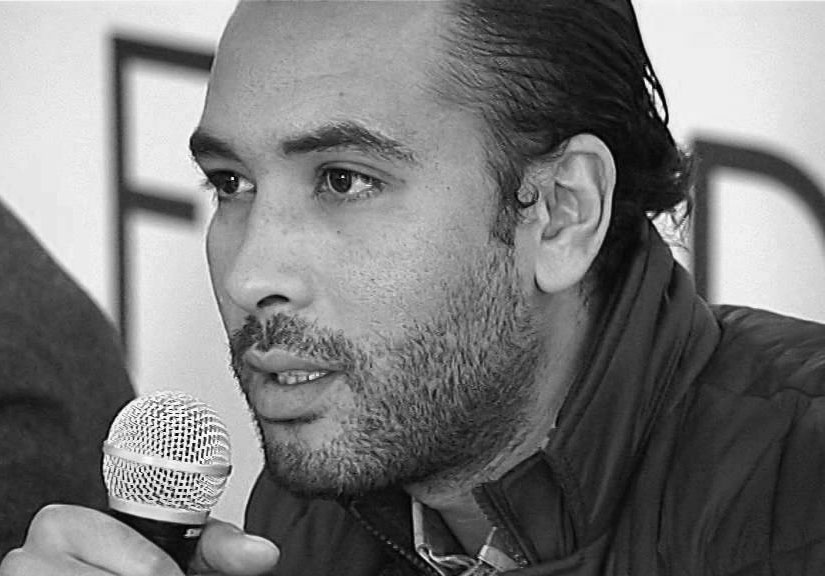
May 10, 2016 | News
The ICJ today called on the Egyptian authorities to immediately release human rights lawyer Malek Adly and to drop all charges against him. He was arrested on Thursday 5 May 2016, pursuant to an arrest warrant.
Malek Adly has been charged with a number of offences, including “attempting to overthrow the regime,” “spreading false rumors,” and “using force against a public servant.”
The Prosecuting authorities have not provided information on specific behaviour that would constitute criminal conduct.
The ICJ is concerned that the charges may be in retaliation for Malek Adly’s work as a lawyer and human rights defender, and are aimed to chill him and others from engaging in work perceived as threatening to or disfavoured by Egyptian authorities.
They came at the backdrop of his work as a human rights lawyer, his critical views on the rule of law situation in Egypt, and his legitimate and peaceful exercise of freedom of expression and assembly in opposing transferring the sovereignty of Tiran and Sanafir islands from Egypt to Saudi Arabia, the ICJ says.
“Malek Adly’s arrest, detention and prosecution for carrying out his work as a lawyer and human rights defender and for peacefully expressing his views is yet another attempt by the Egyptian regime to muzzle lawyers, the last line of defence for victims of human rights violations in Egypt,” said Said Benarbia, Director of the ICJ Middle East and North Africa Programme.
“The regime’s crackdown on fundamental rights and freedoms has been worryingly extended to the very lawyers whose role is to challenge and protect against such crackdown,” he added.
Over the last three years, the ICJ has documented numerous cases of lawyers who have been subjected to human rights violations and reprisals in relation to the representation of their clients.
These include the cases lawyers Imam Afifi and Karim Hamdi who were allegedly subjected to torture and subsequently died while in police custody.
International standards aiming to safeguard the role of lawyers provide that States have a duty to ensure that lawyers are able to perform their functions “without intimidation, hindrance, harassment or improper interference” and that lawyers must not be subject to prosecution or other sanction for carrying out their professional responsibilities, the Geneva-based organization reminds.
International standards on human rights defenders require States protect human rights defenders from attacks, threats, retaliation and arbitrary action.
The Egypt 2014 Constitution guarantees the “independence of the lawyer’s profession and the protection of its interests as a guarantee to protecting the right to defence”. In addition, it prohibits the arrest of a lawyer while he or she is exercising the right to defence, except in flagrante delicto crimes.
“The Egyptian authorities must live up to their obligations under the Constitution and international law and put an immediate end to their attacks against lawyers,” concluded Benarbia.
Contact
Nader Diab, Associate Legal Adviser of the ICJ Middle East and North Africa Programme, t: +216 51727023; e: nader.diab(a)icj.org
Egypt-HR Lawyer MalekAdly-News-Press Releases-2016-ARA (full text in Arabic, PDF)
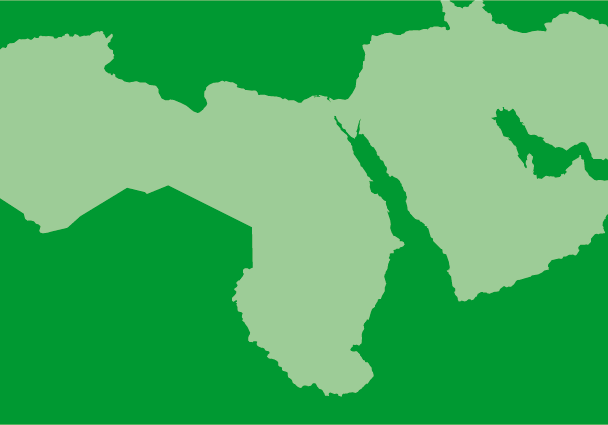
Mar 28, 2016 | News
The ICJ today calls for the reversal of the Supreme Disciplinary Board’s decisions to force into retirement 47 judges following two separate, mass proceedings known as the “July 2013 Statement Case” and the “Judges for Egypt Case”, which concern over 60 judges.
Today’s final decision in the “July 2013 Statement Case” forcibly removed 32 judges from their offices.
It comes after all of the 15 judges referred to disciplinary proceedings in the “Judges for Egypt” were forcibly removed from their offices last Monday.
In a third case on 7 March 2016, the Disciplinary Board removed from office Zakaria Abdel Aziz, a former President of the Judges Club (Egypt’s representative body of judges) and a leading advocate of judicial independence.
“The intensity of Egypt’s attacks against individual judges is reaching a frightening level,” said Said Benarbia.
“By removing judges from the office following mass, arbitrary and unfair disciplinary proceedings, the authorities are purging from the judiciary the very voices that have promoted its independence, and sending a chilling message to others who might challenge the ongoing crackdown on fundamental rights and freedoms in Egypt,” he added.
The ICJ had previously raised concerns about fairness of these proceedings as well as the nature of the charges against the concerned judges.
In the “July 2013 Statement Case” and the “Judges for Egypt Case,” the Disciplinary Board found that the judges had been involved in politics and were therefore “unfit” to carry out their functions.
Article 73 of Egypt’s Judicial Authority Law prohibits judges from engaging in “political activity”.
This prohibition was interpreted by the Disciplinary Board to include “discussing or commenting on legislative and governmental decisions as long as it does not pertain to a case that he [the judge] is looking into as part of his judicial function”.
The ICJ considers that the interpretation by the Disciplinary Board could result in arbitrary limitations to the judges’ right to freedom of expression, assembly and association, well beyond any restrictions that could possibly be justified as necessary to preserve the dignity of their office and the impartiality and independence of the judiciary.
Furthermore, these disciplinary proceedings have failed to meet international standards of fairness, the ICJ says.
The Geneva-based organization previously highlighted procedural flaws in the proceedings against the judges such as failure to be notified properly, to be represented before the Board and to be provided with adequate time and facility to prepare a defense.
“The Egyptian authorities must reinstate all judges that have been removed from their office as a result of unfair and arbitrary proceedings”, said Benarbia.
“Furthermore, they must amend the Judicial Authority Law to ensure that disciplinary offences are clearly and precisely defined within the law; that the exercise of the rights to freedom of expression, association and assembly in a manner consistent with the dignity of the office and the impartiality and independence of the judiciary does not constitute a disciplinary offence; and that the disciplinary procedure is fair and does not undermine the independence and impartiality of the judiciary,” he added.
Contact:
Nader Diab, Associate Legal Adviser of the ICJ Middle East and North Africa Programme, t: +216 51727023; e: nader.diab(a)icj.org
Background
The UN Basic Principles on the Independence of the Judiciary, which were adopted by the UN in 1985 and elaborate on states’ obligations under international law, include the following provisions:
- In accordance with the Universal Declaration of Human Rights, members of the judiciary are like other citizens entitled to freedom of expression, belief, association and assembly; provided, however, that in exercising such rights, judges shall always conduct themselves in such a manner as to preserve the dignity of their office and the impartiality and independence of the judiciary.
- Judges shall be free to form and join associations of judges or other organizations to represent their interests, to promote their professional training and to protect their judicial independence. (…)
- A charge or complaint made against a judge in his/her judicial and professional capacity shall be processed expeditiously and fairly under an appropriate procedure. The judge shall have the right to a fair hearing. The examination of the matter at its initial stage shall be kept confidential, unless otherwise requested by the judge.
- Judges shall be subject to suspension or removal only for reasons of incapacity or behaviour that renders them unfit to discharge their duties.
- All disciplinary, suspension or removal proceedings shall be determined in accordance with established standards of judicial conduct.
- Decisions in disciplinary, suspension or removal proceedings should be subject to an independent review. This principle may not apply to the decisions of the highest court and those of the legislature in impeachment or similar proceedings.
Egypt- removal of judges-press release-2016-ARA (full text, Arabic, in PDF)
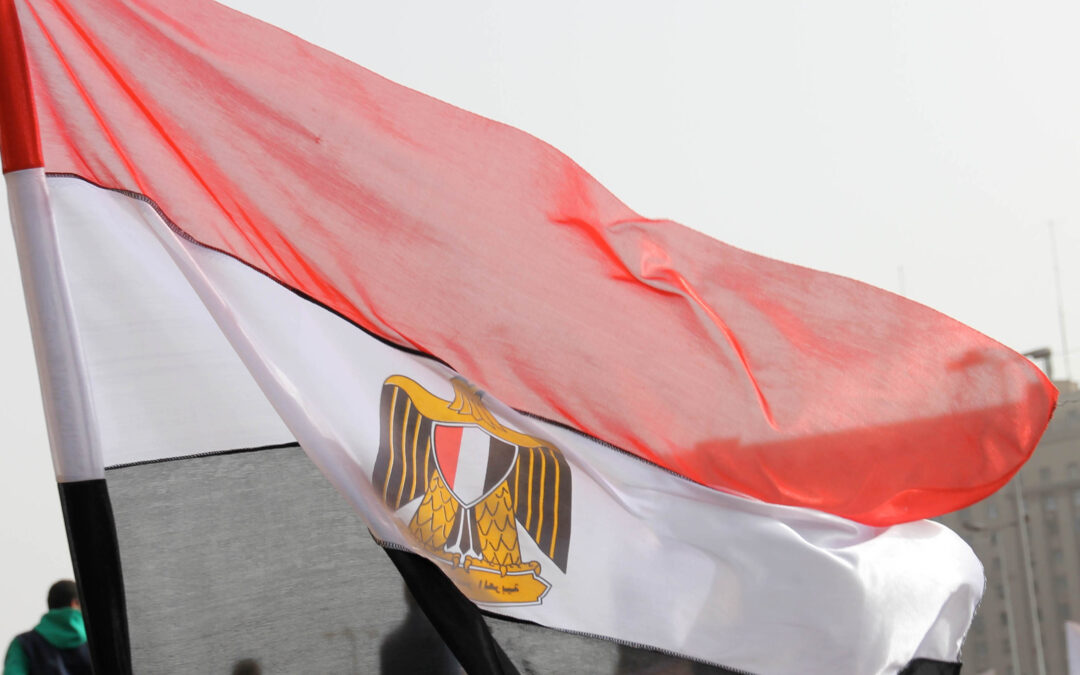
Feb 24, 2016 | News
The ICJ today called on the Egyptian authorities to put an immediate end to their campaign to muzzle judges through unfair and arbitrary “unfitness” proceedings.
The Disciplinary Board, in hearings that tried dozens of judges at the same time, declared a total of 41 judges “unfit” for judicial office in 2015, forcing them into retirement.
The Supreme Disciplinary Board is currently reviewing these two cases.
The ICJ is concerned that many of the judges that have been subjected to these proceedings are leading advocates for judicial independence in Egypt and that the proceedings before both the Disciplinary Board and the Supreme Disciplinary Board were not fair.
Further, the cases stem from the judges’ exercise of freedom of association, belief, assembly and expression, and it appears that the Disciplinary Boards did not act in accordance with relevant international standards in this regard.
”Ending judges’ tenure following mass proceedings that are both arbitrary and unfair is inconsistent with Egypt’s obligations under international law,” said Said Benarbia, Director of the ICJ Middle East and North Africa Programme.
“With these assaults on individual judges, the Egyptian authorities are ensuring that their ongoing, sustained crackdown on fundamental rights and freedoms is extended to the very institution that is supposed to protect such rights and freedoms- the judiciary,” he added.
In the “July 2013 Statement Case”, 56 judges were subjected to disciplinary proceedings, following the Military seizure of power in July 2013, for endorsing a statement that called for the 2012 Constitution to be restored, for a dialogue between all stakeholders to be established within the framework of constitutional legitimacy, and for the right to peaceful demonstration to be respected.
The ICJ considers the statement to have been made consistent with the judges’ right to freedom of expression and association, exercised in a manner that preserved the dignity of their office and the impartiality and independence of the judiciary.
However, on 14 March 2015, the Disciplinary Board found that 31 of the 56 judges were not fit to hold judicial office and in effect removed them from office by forcing them into retirement.
The Board found there was not sufficient evidence that the other 25 judges had in fact endorsed the statement.
The ICJ is concerned that the procedures and hearings before the Disciplinary Board and the Supreme Disciplinary Board have not satisfied international standards of fairness.
In many instances, judges were not adequately notified of the dates of the hearings or of the courtrooms where such hearings took place.
In Egypt, judges facing disciplinary hearings are entitled to have another judge represent them; however, many of the judges were not permitted by Board officials to bring their representative to the hearings, without any reason being given for barring the representative, or because no representative could be secured as a result of fear of reprisals.
Further, many judges were not provided with adequate time and facilities to prepare their defense.
In another case, the “Judges for Egypt Case”, each judge had limited time to make his case before the Board during the hearings, though they were granted the right to submit at the final hearing written pleadings of no more than two pages .
At the final hearing in the case, while the judges waited all day in the Board’s premises, the hearing was held in the absence of all but one of them.
Furthermore, the Board refused to collect the written pleadings without giving any reasons.
On 22 February 2016, after protesting against the adjournment of his hearing, Judge Amir Awad was arrested and placed under detention for four days by the office of the prosecutor.
He is charged with insulting a public employee and forcibly entering his office.
“Both cases have been tainted by failures to ensure the fairness of the proceedings. The Egyptian authorities must nullify all decisions to remove judges resulting from these proceedings and put an immediate end to all forms of intimidation against and persecution of judges,” Benarbia added.
Contact:
Nader Diab, Associate Legal Adviser of the ICJ Middle East and North Africa Programme, t: +216 51727023; e: nader.diab(a)icj.org
Egypt-Attacks against judges-News-Web Stories-2016-ENG (full story in PDF, English)
Egypt-Attacks against judges- Press Release -2016- ARA (full story in PDF, Arabic)
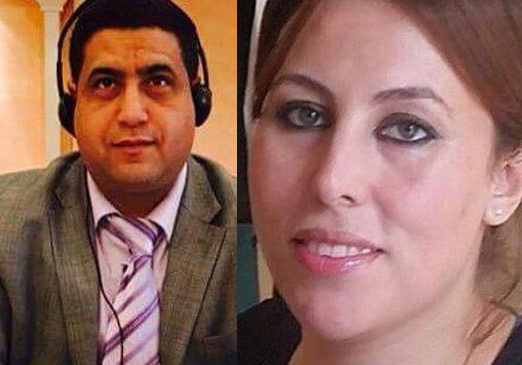
Feb 13, 2016 | News
The ICJ today called for the reversal of last Thursday’s decision removing Judge Mohamed Al-Haini from office with suspension of his pension rights.
Judge Al-Haini, together with his colleague Amal Homani, was referred to the High Judicial Council by the Minister of Justice on unwarranted allegations of “violating the duty of discretion” and “expressing opinions of a political nature” following social media comments and media articles written by the judges in which they criticized the government’s Draft Laws on the Conseil Supérieur du Pouvoir Judiciaire and on the Statute for Judges.
The ICJ stresses that it is entirely appropriate for a judge to comment on matters of public interest that go to the organization and governance of the legal profession.
The ICJ, as well as Moroccan professional associations of judges and civil society organizations, has previously called on the Moroccan authorities to revise these same two draft laws to fully comply with international standards on judicial independence.
The ICJ is concerned both at the unfair and arbitrary nature of the proceedings against Judge Al-Haini. He was only granted two hearings before the High Judicial Council’s decision to dismiss him was taken.
Furthermore, several flaws in the proceedings curtailed Judge Al-Haini’s right to defense.
In particular, the High Judicial Council refused to strike the Minister of Justice from the disciplinary panel.
The Minister clearly had a conflict of interest, given his role in initiating the proceedings against the two judges.
As a result, Judge Al-Haini’s defense team withdrew from the case in protest.
At the second hearing the proceedings were carried out in the absence of any defense counsel.
“Despite recurring breaches of due and fair process standards, the disciplinary proceedings against Judge Al-Haini continued leading to the harshest disciplinary sanction possible in violation of principles governing the independence of the judiciary,” said Theo Boutruche, Legal Adviser of the ICJ Middle East and North Africa Programme.
According to international standards members of the judiciary facing disciplinary proceedings have the right to an independent and impartial authority or court with all the guarantees of a fair trial.
The ICJ is further concerned that under the current legal framework in Morocco, the decisions of the High Judicial Council are not subject to any form of review.
This is clearly inconsistent with international standards that require that any disciplinary decision should be subject to an independent review.
“The absence of any possibility to challenge the decision of dismissal deprives Judge Al-Haini of a safeguard against the improper use of disciplinary proceedings, which is clearly the case here,” Boutruche warned.
The ICJ had previously called on the Moroccan authorities to end the unwarranted and arbitrary disciplinary proceedings against Judges Al-Haini and Homani.
The ICJ stressed that members of the judiciary, like other persons, enjoy the rights to freedom of expression, belief, association and assembly in consonance with the dignity of their office and the impartiality and independence of the judiciary.
“This decision should be nullified and the proceedings against the two judges themselves should be terminated,” Boutruche added.
“This case is a stark reminder of the need for the Moroccan authorities to revise the two draft laws, that were adopted last Wednesday by the parliament, to properly strengthen the judicial independence and create a truly independent Conseil Supérieur du Pouvoir Judiciaire in line with international standards,” he concluded.
Contact:
Theo Boutruche, Legal Adviser of the ICJ Middle East and North Africa Programme, tel: +961 70 888 961, e-mail: theo.boutruche@icj.org
Morocco-Al Haini Dismissal-Web Story-2016 (full web story in PDF, Arabic)









